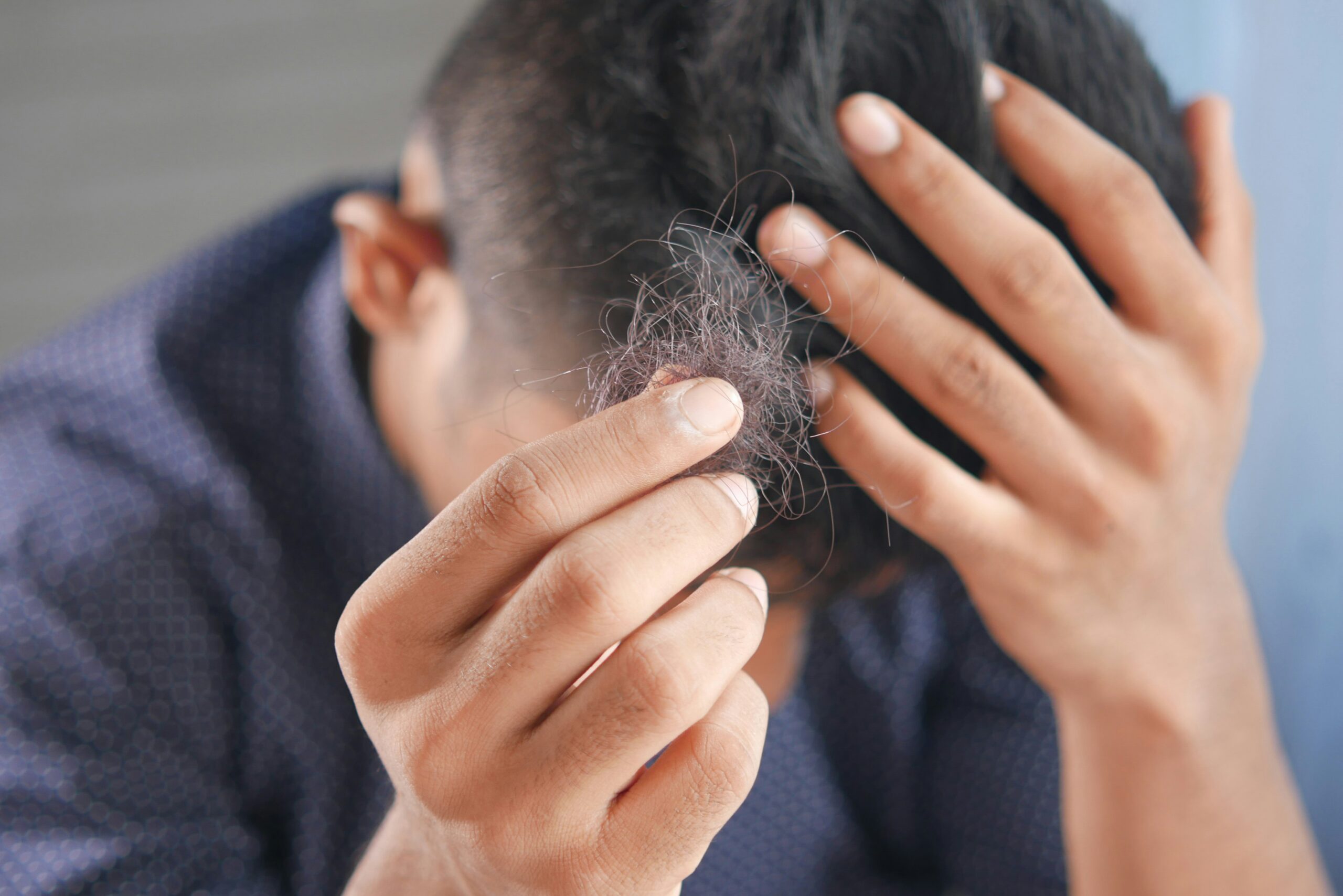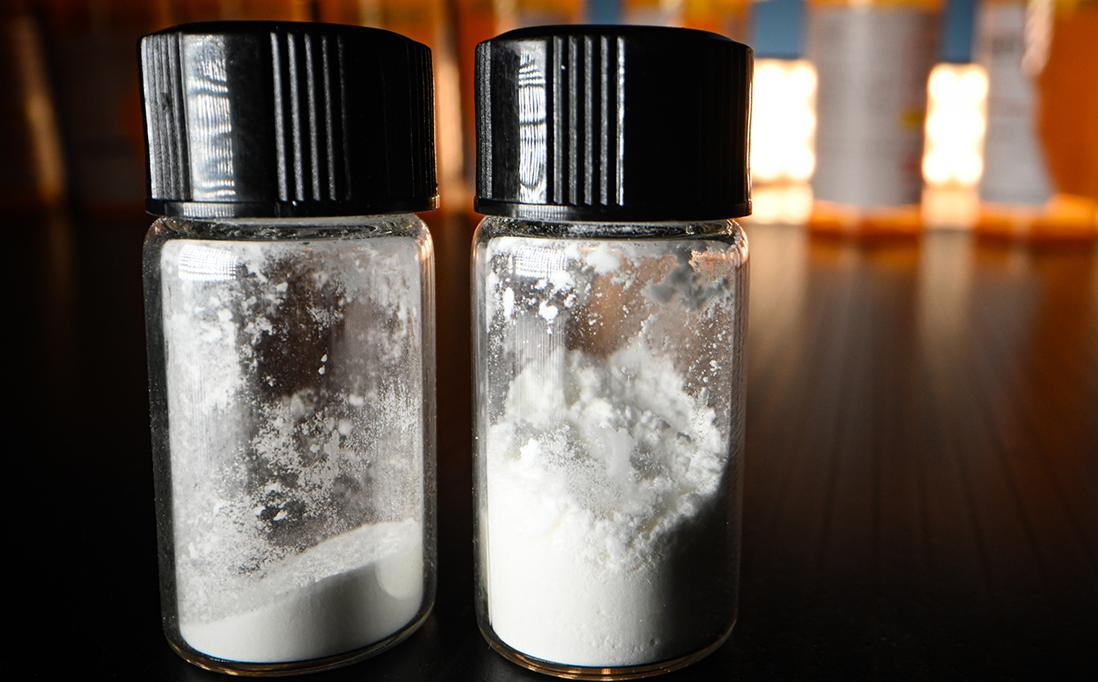Cocaine is often glamorized in popular culture, but the truth behind this dangerous stimulant is far from glamorous. People frequently ask, “Does cocaine cause hair loss?” They also wonder about its impact on weight, mental health, and physical well-being. This informative article will explore how cocaine affects the body—particularly the hair—while providing vital insights into the broader consequences of abuse. By the end, you will have a clearer understanding of cocaine’s dangers, how it contributes to problems like hair loss, why inpatient medically assisted rehab is the most effective way to break free from addiction, and how Spark To Recovery can offer life-changing support to those in need.
Key Points
- Understanding Cocaine and Its Effects
- Cocaine disrupts normal bodily functions by overstimulating the central nervous system.
- Chronic use can lead to a wide array of health issues, including potential hair loss.
- How Cocaine Impacts the Hair and Scalp
- Cocaine can cause hormonal imbalances and nutritional deficiencies that contribute to hair thinning and fallout.
- The stress caused by cocaine use can also trigger a type of hair shedding called telogen effluvium.
- Other Serious Health Concerns
- Can cocaine cause seizures? Yes, heavy use significantly raises the risk of seizures and other neurological complications.
- Does cocaine cause weight loss? Yes, it can suppress appetite, leading to dangerous weight fluctuations.
- Does cocaine cause depression? Paradoxically, although it is a stimulant, cocaine can lead to or worsen depressive symptoms.
- Why Inpatient Medically Assisted Rehab Is Best
- Inpatient rehab provides constant medical support and a controlled environment for detox and recovery.
- Professional help ensures patients receive physical, emotional, and psychological support to manage addiction effectively.
- How Spark To Recovery Can Help
- Spark To Recovery offers a caring, professional environment specifically tailored to address all facets of cocaine addiction.
- Their comprehensive programs focus on rehabilitation, relapse prevention, and lifelong wellness.
- FAQs
- Answers to common questions about cocaine, hair loss, and treatment options.
A Overview for Cocaine:
Cocaine is a potent stimulant drug extracted from the leaves of the coca plant. It primarily works by increasing dopamine levels in the brain’s reward circuits, leading to intense feelings of euphoria and energy [1]. However, these pleasurable effects are short-lived, and users often find themselves chasing the elusive high. Prolonged use leads to both psychological dependence and severe physical health complications.
Physical and Psychological Ramifications
- Cardiovascular Stress: Cocaine speeds up the heart rate, elevates blood pressure, and constricts blood vessels. Over time, these effects can damage the cardiovascular system, increasing the risk of heart attacks [2].
- Neurological Effects: Chronic cocaine use can lead to headaches, seizures, and strokes. When people wonder, “Can cocaine cause seizures?” the answer is a resounding yes—abusing the drug places significant stress on the nervous system.
- Psychological Consequences: Cocaine abuse often leads to mood disorders. An essential question, “Does cocaine cause depression?” warrants attention. While cocaine provides a temporary euphoric high, the comedown frequently induces a severe depressive episode.
Cocaine’s ability to disrupt various bodily functions extends beyond the cardiovascular and neurological realms. For many, a lesser-known but distressing outcome is the potential for hair loss.
Ready to take a step toward comprehensive care?
Break Free from Cocaine Dependence Today
Spark To Recovery Can Help You Overcome Your Addiction
Does Cocaine Cause Hair Loss?
Hair loss can stem from numerous causes, including genetics, hormonal imbalances, and underlying medical conditions. However, there is increasing evidence to suggest that cocaine use can exacerbate or even trigger hair thinning and shedding.
Hormonal Imbalances
Chronic cocaine use alters hormonal regulation and metabolic functions. Hormones like cortisol, which the body releases in response to stress, can become elevated due to frequent cocaine binges [3]. High cortisol levels have been linked to hair thinning and alopecia because they disrupt the normal hair growth cycle.
Telogen Effluvium
Telogen effluvium is a specific type of hair shedding triggered by stress or shock to the body. Cocaine binge episodes often place tremendous physical and emotional stress on users. Under these stressful conditions, hair follicles can prematurely enter the “telogen” or resting phase, leading to diffuse hair shedding.
Nutritional Deficiencies
Another answer to the question, “Does cocaine cause hair loss?” lies in the nutritional deficiencies common among individuals struggling with addiction. Cocaine use can reduce appetite and disrupt normal eating patterns, thereby depriving the body—including the scalp and hair follicles—of essential nutrients like vitamins, minerals, and proteins [4]. Without these nutrients, the hair can become weaker and more prone to shedding.
Does Cocaine Cause Weight Loss?
Related to the nutritional concerns is the frequently asked question, “Does cocaine cause weight loss?” Cocaine can suppress appetite significantly, leading users to skip meals and ignore balanced diets. This lack of proper nutrition not only contributes to hair loss but also weakens the body’s immune system and organ function. The combination of stress, hormonal imbalances, and dietary deficiencies can accelerate hair thinning over time.
Concerned about hair loss and the damaging effects of cocaine on your body?
Break Free from Cocaine Dependence Today
Spark To Recovery Can Help You Overcome Your Addiction
The Stress Connection: Cocaine and Overall Well-Being
Physical Stress Leading to Hair Loss
Persistent cocaine abuse increases the production of the stress hormone cortisol. Elevated cortisol levels impair hair follicle function, often leading to accelerated hair shedding [5]. When stress hormones remain high for extended periods, the impact on hair follicles can be significant.
Emotional and Psychological Stress
Beyond the physical toll, psychological stress contributes to hair loss as well. Cocaine can trigger anxiety, paranoia, and mood swings. These mental and emotional stressors can compound the physical damage, exacerbating hair thinning. Furthermore, stress often creates a vicious cycle—individuals might use more cocaine to cope, thereby increasing stress levels and worsening hair loss.
Can Cocaine Cause Seizures?
People who use cocaine recreationally often underestimate its immediate and potentially life-threatening dangers. Among these severe risks is the possibility of seizures. Cocaine’s stimulant properties overexcite the central nervous system. This overactivity can result in:
- Hyperthermia (high body temperature)
- Elevated blood pressure
- Excessive neuron firing
When neurons fire erratically, seizures may ensue. This complication underscores why urgent, medically assisted intervention is paramount for individuals struggling with cocaine abuse.
Does Cocaine Cause Depression?
Ironically, many turn to stimulants like cocaine for a temporary boost in mood and energy. However, this short-term euphoria comes at a steep price. The “crash” that follows a cocaine high can plunge users into a deep depressive state. Chronic use disrupts the brain’s natural production of dopamine and serotonin—chemicals that regulate mood and motivation [6]. Over time, these imbalances worsen depressive symptoms and make individuals more dependent on cocaine to regain fleeting moments of happiness. This vicious cycle can be incredibly challenging to break without professional help.
Spark To Recovery: A Beacon of Hope
When faced with an addiction that has multifaceted effects—ranging from hair loss to seizures, from depression to weight loss—finding a dedicated, comprehensive treatment center becomes crucial. Spark To Recovery stands as a beacon of hope for individuals battling cocaine abuse.
Personalized Treatment Plans
Addiction is a complex issue that varies from person to person. Spark To Recovery’s highly skilled team understands this. They offer customized treatment plans that factor in each client’s unique history, medical needs, and goals for the future.
Holistic Care Approach
Cocaine addiction isn’t just about the drug; it’s about the whole person. Spark To Recovery emphasizes holistic care—addressing physical, emotional, and psychological well-being. This all-encompassing approach helps clients regain control of their lives and fosters long-term healing.
Support for Rebuilding Lives
Recovery doesn’t end once treatment is completed. Spark To Recovery provides robust aftercare support to help individuals transition into a life free from substance abuse. From coping strategies to community resources, the center ensures that clients stay on the path of sustainable recovery.
Ready to start a transformative journey with Spark To Recovery?
Break Free from Cocaine Dependence Today
Spark To Recovery Can Help You Overcome Your Addiction
Why Inpatient Medically Assisted Rehab Is the Best Solution
When addressing severe cocaine addiction, including the physical manifestations like hair loss and the potential for seizures, an inpatient medically assisted rehab program often proves most effective. Here’s why:
- 24/7 Medical Supervision
In cases where the risk of seizures or other health complications is high, having medical professionals on standby is critical. Withdrawal from cocaine can involve intense cravings, depression, and extreme fatigue. Inpatient care ensures that any sudden medical emergencies are addressed immediately. - Structured Environment
The controlled setting of an inpatient facility eliminates external triggers and distractions. Clients can focus solely on recovery without the temptations and stressors of everyday life. - Comprehensive Detox and Therapy
Detoxification is the first step in healing from addiction. Medically assisted detox ensures the body is safely cleared of cocaine, minimizing complications. Following detox, inpatient programs incorporate therapies—such as cognitive-behavioral therapy (CBT) and group counseling—that address the root causes of addiction. - Nutritional and Lifestyle Support
Given that many individuals with cocaine addiction suffer from nutritional deficiencies (contributing to hair loss and overall weakness), inpatient programs offer balanced meals and nutritional counseling. This support helps restore the body’s health, including the potential for improving hair quality over time. - Relapse Prevention Strategies
Learning how to handle cravings, stress, and emotional triggers is a cornerstone of inpatient rehab. Clients gain invaluable coping skills, which significantly lowers the chance of relapse once they return to daily life.
Interested in an inpatient medically assisted rehab program that prioritizes your safety and recovery?
Break Free from Cocaine Dependence Today
Spark To Recovery Can Help You Overcome Your Addiction
Additional Considerations for Long-Term Health
Stress Management Techniques
Since stress plays a pivotal role in both hair loss and cocaine relapse, adopting healthy coping strategies is essential. Techniques like meditation, yoga, or even journaling can reduce the chronic stress levels that harm hair follicles and fuel addiction.
Balanced Nutrition
To combat both hair loss and the general weakening of the body caused by cocaine, incorporating a nutritious diet rich in vitamins, minerals, and proteins can support recovery.
- Protein: Supports hair and tissue repair.
- Iron: Facilitates oxygen transport to hair follicles.
- Zinc and Biotin: Improves scalp health and strengthens hair.
Regular Medical Check-Ups
Regular check-ups with healthcare providers are key to monitoring one’s recovery progress. By keeping track of hormone levels, nutrient deficiencies, and overall well-being, individuals can better address factors that contribute to hair loss.
Frequently Asked Questions (FAQs)
- Q: Does quitting cocaine guarantee my hair will grow back?
A: While ceasing cocaine use can halt further hair damage, hair regrowth depends on various factors, including genetics, overall health, and how severely the drug impacted your body. Improved nutrition, stress management, and medical care significantly increase the chances of hair recovery. - Q: How long does it take to see improvements in hair quality after stopping cocaine?
A: Hair growth cycles typically span several months. Many individuals notice improvements in hair texture and reduced shedding within 3–6 months of maintaining sobriety and a healthier lifestyle. - Q: Can cocaine-induced hair loss be permanent?
A: In most cases, cocaine-related hair loss stems from stress and nutritional deficiencies. These forms of hair loss are often reversible with lifestyle changes and medical interventions. However, if hair follicles are severely damaged or if underlying health conditions exist, some degree of thinning may persist. - Q: Does cocaine cause weight loss in everyone who uses it?
A: Not everyone experiences drastic weight fluctuations, but many users do report suppressed appetite. This can lead to malnutrition, which, in turn, contributes to hair loss and other health problems. - Q: Why is inpatient rehab preferred over other methods for treating cocaine addiction?
A: Inpatient rehab offers 24/7 medical supervision, structured environments, and comprehensive therapy options. These factors are critical for those experiencing severe health risks such as seizures and major nutritional deficiencies, making inpatient care the safest and most effective option for many.
The Path Forward
Tackling cocaine addiction and its associated side effects—whether it’s hair loss, weight changes, seizures, or depression—requires professional help. Spark To Recovery stands ready to guide you through every stage of this challenging journey. By focusing on inpatient medically assisted rehab, clients receive not just treatment for the addiction but also holistic support to address all facets of their well-being.
Remember: hair loss, although distressing, is often a symptom of deeper issues related to cocaine abuse. Addressing the root causes—stress, hormonal imbalances, and poor nutrition—can pave the way for improved hair health. More importantly, conquering cocaine addiction can restore relationships, mental health, and overall quality of life.
If you or a loved one is suffering from cocaine abuse contact our admissions team to learn how Spark To Recovery’s inpatient medically assisted program can transform your life.
Break Free from Cocaine Dependence Today
Spark To Recovery Can Help You Overcome Your Addiction
In conclusion, the question “Does cocaine cause hair loss?” highlights one of the many ways this powerful stimulant can undermine a person’s health and well-being. From seizures to depression, the dangers of cocaine extend well beyond hair and scalp issues. Seeking inpatient, medically assisted rehab offers the most comprehensive, effective path to recovery—especially for those at risk for severe complications. And when it comes to professional, compassionate, and personalized care, Spark To Recovery is there to guide you every step of the way.
References
[1] National Institute on Drug Abuse (NIDA). “Cocaine Drug Facts.”
https://nida.nih.gov/publications/drugfacts/cocaine
[2] Centers for Disease Control and Prevention (CDC). “Heart Disease and Drug Abuse.”
https://www.cdc.gov/heartdisease
[3] Substance Abuse and Mental Health Services Administration (SAMHSA). “Managing Stress During Recovery.”
https://www.samhsa.gov/find-help/recovery
[4] Office on Women’s Health (OWH). “Nutritional Guidelines During Substance Abuse Recovery.”
https://www.womenshealth.gov
[5] American Heart Association (AHA) (Nonprofit). “The Dangers of Chronic Stress on the Body.”
https://www.heart.org/en/healthy-living/healthy-lifestyle/stress-management/stress-and-heart-health
[6] National Institutes of Health (NIH). “Neurobiological Effects of Cocaine.”
https://www.nih.gov

Laura A. Fierro, Ph.D., LMFT
Board-Certified Physician in Internal Medicine
Break Free from Cocaine Dependence Today
Spark To Recovery Can Help You Overcome Your Addiction



